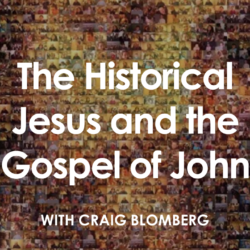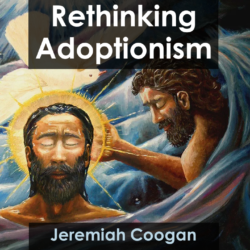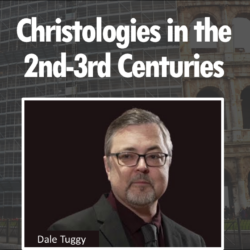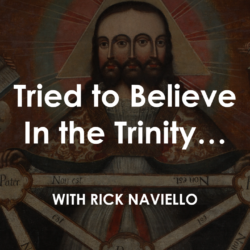Christians have approached the first chapter of Genesis differently over the centuries. There are those who hold to young earth creationism, day-age theory, gap theory, and progressive creationism, just to name a few. Oftentimes defenders of a particular view will provide biblical, scientific, and historical evidence for their position. Our focus today is on the use of church history to find witnesses for this or that view. Rather than cherry picking a quote here and quote there, it’s better to read ancient Christians in their own context to be sure we are interpreting them correctly.
My guest today is Dr. Andrew Brown, a lecturer in OT and Hebrew at Melbourne School of Theology. He did his thesis on the creation week in Genesis 1 and 2 and has written a book called Recruiting the Ancients for the Creation Debate. In today’s episode he shares his concerns and recommendations for handling our historical sources wisely.
Listen to this episode on Spotify or Apple Podcasts
—— Links ——
- More about Andrew Brown here
- Check out his book: Recruiting the Ancients for the Creation Debate
- Get the transcript of this episode
- Support Restitutio by donating here
- Join our Restitutio Facebook Group and follow Sean Finnegan on Twitter @RestitutioSF
- Leave a voice message via SpeakPipe with questions or comments and we may play them out on the air
- Intro music: Good Vibes by MBB Attribution-ShareAlike 3.0 Unported (CC BY-SA 3.0) Free Download / Stream: Music promoted by Audio Library.
- Who is Sean Finnegan? Read Sean’s bio here







I found myself agreeing and disagreeing in places.
I DON’T agree with the claim early peoples were not that interested in the material origins of our Creation (if I heard Andrew correctly). I am quite sure ancient peoples questioned and pondered how we and everything else came to exist physically? I don’t believe people today are that different in their existential thinking to those of early human history. Those in developed countries today do generally have a more materialistic worldview and are less inclined to believe in or question the spiritual, but at the root, still face the same “Big Questions of life” that all, including ancient peoples, were challenged by … Why is there something rather than nothing? … What is the meaning of life? … What happens after you die? … Do we have free will? … Why do human beings act the way we do? … How do you determine right and wrong? … If God exists and is good, why is there so much pain and suffering in the world? … … …
I don’t agree with the exnihlio doctrine at all in any shape or form (and I am not saying Andrew was promoting this). In terms of our space-time existence … In the beginning was God, NOT nothing, is my personal position. The statement that exnihlio was not formulated till around the 2nd or 3rd century is not true. Ancient near eastern & animist cultures as well as BC second temple Judaism were already talking this type of language.
See … https://en.wikipedia.org/wiki/Creatio_ex_nihilo
I also heard Andrew say that ancient audiences did not have any type of dispensational thinking with his “6000 year lump” generalization. While the seven and eight biblical dispensations have been popular for a few hundred years only since Darby … the ancient “Esenes” of Israel in the Dead Sea Scrolls talked of four dispensations … an “age of chaos” for the first 2000 years, then the “age of law” for the next 2000 years, and the current “age of Grace” of 2000 years followed by a 1,000 year “millennium”. So, there were in fact, very early forms of dispensationalist thinking and discourse. I personally adopt a Covenantal framework in reading scripture as this works best for me. You might also call me a material millennialist I guess.
I am definitely not a fan of either Calvin or Augustine. I feel Andrew takes the use of anthropomorphism too far. I don’t see any way around a “special creation” of everything that exists in our space-time. Leaning too much into anthropomorphism to me is suggestive of “long ages” and avoiding literal interpretations of scriptures that don’t easily lend themselves to non-literal interpretations. I will always go with literal if it fits well, which in the case of Genesis means accepting a “special miraculous creation” that was near instantaneous (over 6 literal days – why should any believer be uncomfortable with this?). Yes I am a young earth creationist. I also favor the Septuagint’s biblical timeline over the much later 7th-10th century AD Masoretic derived biblical timeline. Jesus and his followers would have been familiar with the Septuagint and had zero knowledge of the Masoretic Text.
ASIDE: There are claims today’s Septuagint was deliberately corrupted to a small degree in the centuries following Christ when Judaism and Christianity was pulling apart.
At 36 minutes … I was disappointed ancient flood accounts from other cultures were used to attack the biblical timelines of Noah’s flood. I have heard reported that there are over 300 separate Flood accounts from other cultural sources – none of which are in full agreement. Are we to consider scripture (our bible) as authoritative or just another historical account with truths, half truths (errors)? It is easy to say that sections of scripture should not be taken literally and open the door wide to interpreting scripture however we want (this often means bringing our own presuppositions or eisegesis) which is a significant problem within the Church. Yes some scriptures are not meant to be taken literally but they are usually fairly obvious. I don’t believe Genesis leaves the door wide open to being interpreted metaphorically to the degree the presenter suggests. I choose not to give flood accounts from other ancient cultures preeminence over scripture. At the same time, I do agree with Andrew that God MOST of the time uses natural processes subject to the laws of space-time that He has already put in place.
I fully agree that scripture was written “for us” and not “to us” on a surface reading. Absolutely! Including us Australians. HOWEVER, scripture in another sense does often also speak “to us” through the spirit at times in ways that apply directly to our current unique circumstances and challenges. Scripture in effect through the spirit is then “reading us” when this is going on in my experience.
I hope I made some sense above.
Sean,
I found your recent podcast with Andrew Brown very interesting. I appreciate the work he put in. That he found that most ECF’s had a Neo platonic worldview was hardly surprising. I was left with many questions though.
1. Do you tell your guests that you are a Unitarian? It was obvious that Brown is a Trinitarian and you didn’t seem to mention your own beliefs.
2. You seem to be taking the position, that Genesis 1 isn’t a literal history of the Creation of the universe we live in today, but is in fact a religious myth similar to other local religions origin stories. Is that correct?
3. In Exodus 20, The author makes the claim that Moses was on top of Mt. Sinai with a being who declared himself to be Jehovah. He claims in this passage “For in six days the LORD made heaven and earth, the sea, and all that in them is, and rested the seventh day: wherefore the LORD blessed the sabbath day, and hallowed it.” Could you explain how you interpret that statement so that it aligns with your position?
4. In Exodus 31, this person who claims to be Jehovah reiterates the Sabbath rest day, and at the end of the chapter, it is claimed that Jehovah wrote the Covenants, including the six day claim with his own finger, on stone. Could you explain your take on this moment? Which part of this story are you claiming is inaccurate or perhaps misunderstood if; in fact, you don’t believe in a literal Creation week?
5. Perhaps I am mistaken, but it is my understanding that the Hebrews named the days of the week Day One, Day Two, Day Three, etc. Rishon literally means “first”, Sheni means “second”, Shlishi means “third” and so on. Did the Nation of Israel misunderstand Jehovah and think that Genesis 1 was actually true? Why did they think the correct name for the first day of the week was ONE?
6. In Matt 19 Jesus is quoted as saying: 4 He answered, “Have you not read that he who created them from the beginning made them male and female, 5 and said, ‘Therefore a man shall leave his father and his mother and hold fast to his wife, and the two shall become one flesh’?” Did Jesus believe Genesis 1 was literal?
7. In Genesis 1:29-30, Jehovah gives plants and green herbs to the animals for food. In the fossil record, we have lots of evidence of animals eating other animals. We also see cancer and tumors in the fossil record. If the Fossil record shows life before Adam, wouldn’t that make Genesis 1 inaccurate? Did God intend for there to be cancer in his original creation?
8. If God created the original creation with death, mutation, cancer, and violence in the animal kingdom, when he restores the Creation to its original design, won’t all of those things be present as well?
9. Does the fact that Augustine believed torturing people until they agreed with Church theology, Calvin was complicit in the murder of Servatus, and Luther was such a Jew hater that his last book was used as the framework for Nazi Germany’s campaign against them matter? Should we look at them as people who had a good understanding of the Bible?
10. Would someone reading the Bible, without a modern understanding of science, see in it millions of years of death and mutation in order to arrive at the “Garden of Eden?”
Regarding 5: In Hebrew these days are named as they are in the creation account (2nd, 3rd, …). Likewise it is defined when a day starts/end (evening).
But the first day is an exception as it is called “echad,” i.e. “one.” As with anything, you will find reasons for why this is so. E.g. Rashi says that on this day God was still the single only being in the universe and so the day is named “one.” But this is no longer the case and ordinarily this day is called “rishon.” Again, there are many such “spiritual” explanations for just about anything in Judaism. It is not even always taken to be literally true, but even then there can be some truth learned from it.
Hopefully this is helpful to you.